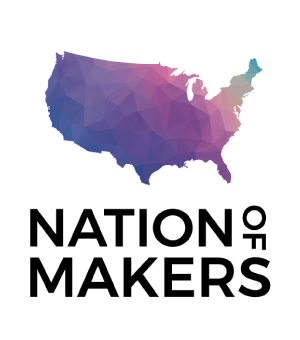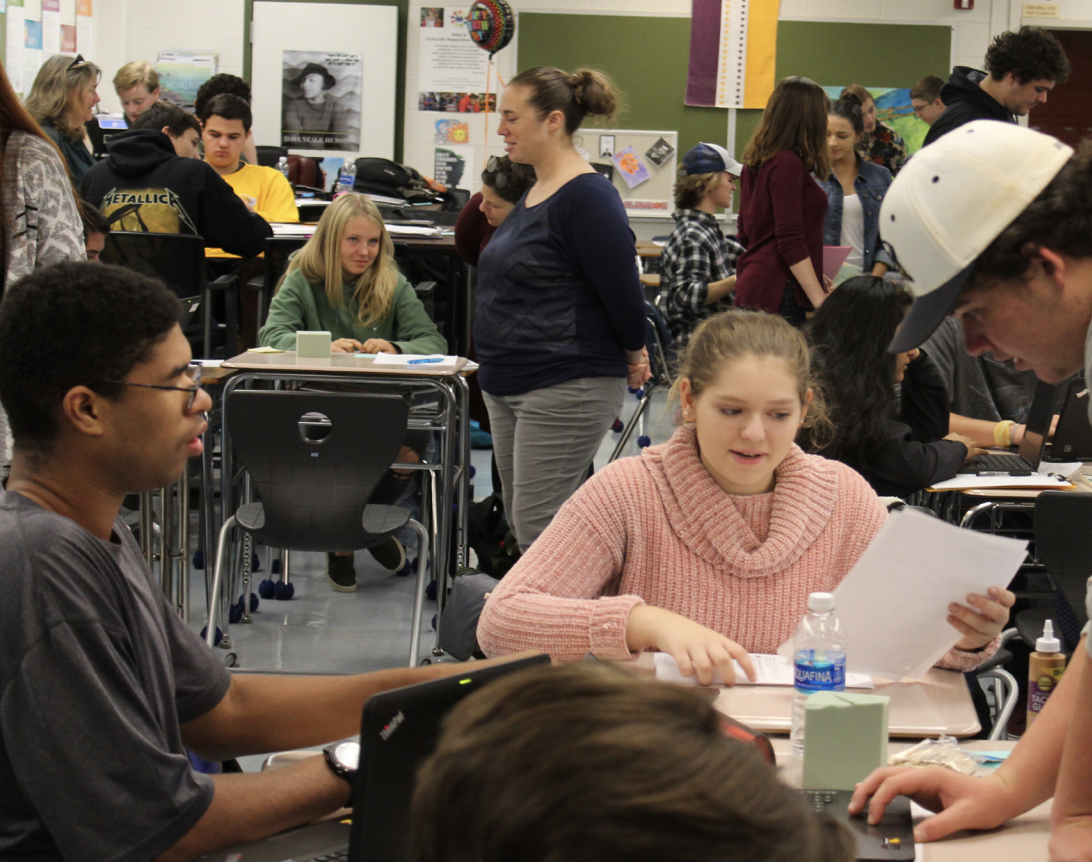Making the Case: EDUCATION
Maker approaches to K-12 and higher education deliver powerful experiences that complement and support learning across all disciplines, nurturing resourceful, confident and curious youth. STEM (Science, Technology, Engineering, & Mathematics) educators have documented hands-on, project-based education to transform learning to cultivate and inspire STEM learners. Maker learning spaces are “more motivating, support engagement and persistence, identity development, and the growth of resourcefulness.” Further, Lucas Education Research finds that when low-income schools provide opportunities for making, significant and demonstrated learning occurs. Maker approaches in education promise to increase and broaden engagement in STEM fields—a national priority if the United States is going to maintain its role as a global leader in technology development.
POLICY OPPORTUNITIES
Prepare more teachers and schools to adopt maker approaches to teaching and learning through active support for local manufacturing, funding for community based maker space learning environments open to all.
Support maker approaches, project-based learning pedagogies, and flexible school structures to broaden reach and impact of hands-on learning.
Case Studies
Dent Education - Everyone Can “Make a Dent”
Education curriculum at Dent illustrates entrepreneurship as social-emotional learning. The program empowers students to address neighborhood pain points, and innovate and implement solutions in collaboration with school resources and business mentoring. Students and parents explore multiple pathways that direct youth to further academic success, workforce skills training, business experience and upward mobility in innovation projects that make a difference and produce income. 2000 students in 2018 and 2019 earned $200,000 in Dent Programs and “Bet on Baltimore” internships. 90% surveyed “view problems as opportunities to make a difference.”
Girls Garage: Fearless Girls to Make a Difference
Girls Garage is a workspace that engages teenage girls in workshops to design and build in after-school and summer workshop sessions. With woodworking, welding, printmaking, and other creative build activities, participants explore their interests and possibilities. “96% of girls reporting increased confidence and interest in STEM and building trades because of Girls Garage.” (Girls Garage Impact Report, 2020)
Albemarle County Public Schools: Making-Based and Project-based Learning Across Grades
Project Based Learning in Albemarle County Public Schools - with a unique maker twist - is there to stay. In every one of the nine-week units, students have a maker portion where they build and construct before their actual end product. There is always an authentic audience and purpose, often doing work that directly benefits or is connected to their own community. Jamie Dion, a teacher at Woodbrook Elementary says: “We analyzed the standards and organized them so that kids were actually going through experiences rather than just doing projects in isolation from one another. As a result, what ended up happening was that we created these nine-week units embedding a multitude of standards, but in an authentic and meaningful way.”
KID Museum’s Invent the Future Program
KID Museum’s Maker Educators lead sessions that prompt teams of middle school students to address a community or global problem by developing, designing, and prototyping an innovative solution to the question: What will you make to protect life on this planet?
Working with the 14th largest public school district in the nation, youth of diverse backgrounds gain innovation and engineering design experience through hands-on, project based learning that couples technical skill building with creative problem solving and social-emotional skill development. The KID Museum team also provides professional development workshops to help classroom teachers continue project work back at the school.




